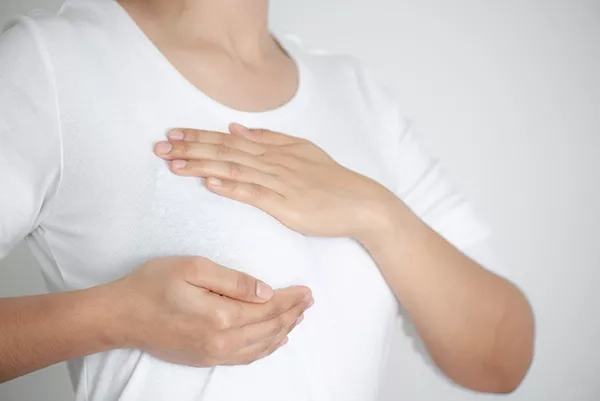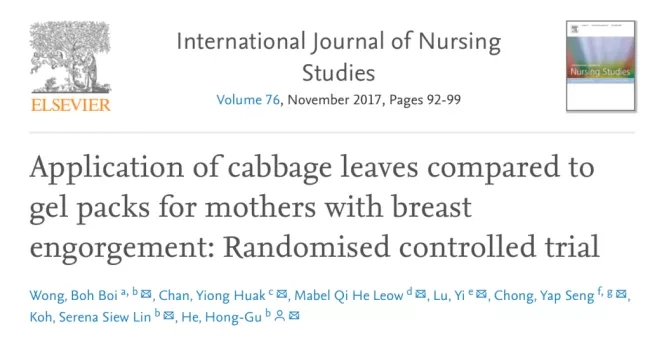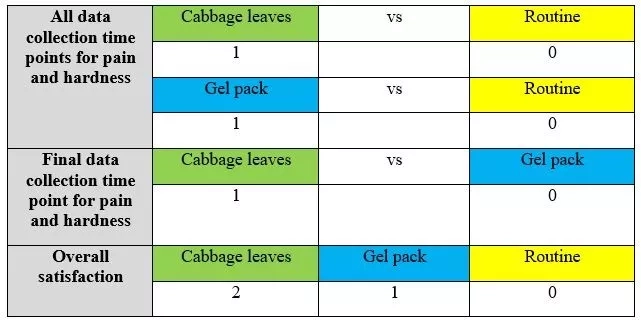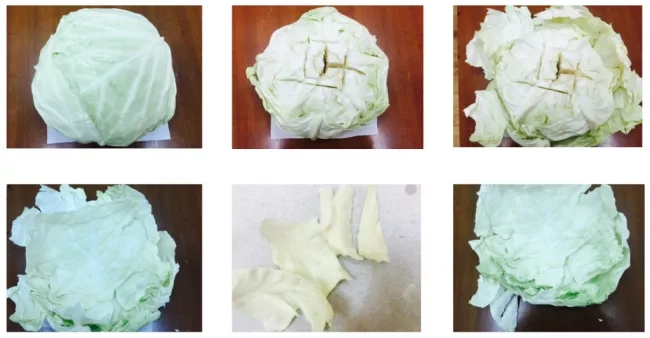Reducing breast engorgement with cabbage leaves & gel packs
By Dr Wong Boh Boi
Founder and Senior ParentCraft Consultant

Breast engorgement is one of the common problems experienced by mummies after the birth of their children. It is the feeling of tightness in your breast that can result in hardness and pain. There are multiple theories behind this phenomenon, and the most popular belief is that there is an increase in milk production. If you have it, you are not alone. In fact, studies have found that 20–70% of women experience breast engorgement.1,2
There have been many traditional methods that have been explored in the past, including methods like breast massage.
To help relieve these common symptoms, Dr Wong experimented with the use of cabbage leaves and cold gel packs.3 The study was published in the top international nursing journal (International Journal of Nursing Studies). We would like to share the findings of the study in this article.

How was the study conducted?
A randomised controlled trial was conducted, and 227 mothers were divided into three groups:
Group 1: Cold cabbage leaves application plus routine care by the hospital
Group 2: Cold gel packs application plus routine care by the hospital
Group 3: Control group which received routine care by the hospital only
*Routine care includes education on breastfeeding during antenatal classes, daily in-house postnatal teaching classes, and during rounds conducted by lactation consultants. Lactation consultants also help to rectify problems during breastfeeding. Pain management may include: 1) Paracetamol 500mg (two tablets of 250mg) three times a day; 2) Synflex 550mg (2 tablets of 275mg) two times a day; or 3) Ponstan 500mg (2 tablets of 250mg) three times a day.
This was the study flow and data collection point
The first application of cabbage leaves or gel pack
a. Data collection after 30 minutes
b. Data collection after 60 minutes
c. Data collection after 120 minutes
The second application of cabbage leave or gel pack
a. Data collection after 30 minutes
b. Data collection after 60 minutes
c. Data collection after 120 minutes
Results
Cabbage leaves were found to be most effective in relieving pain and hardness. Gel packs were also helpful to some extent. Mothers who used cabbage leaves were most satisfied, followed by those who used gel packs.

Total scores for the 3 groups:
Cabbage leaves – 4 points
Gel packs – 2 points
Routine care – 0 point
Now we know that cabbage leaves are most effective, let us teach you how to apply the cabbage leaves.
- The cabbage leaves can be the common green cabbages (Brassica oleracea).
- Remove the hard stem of the cabbage leaves.
- Rinsed the cabbage leaves in cold water and chill in the freezer for 15 minutes in a zip lock freezer bag or in the fridge for 1 hour before application.
- Apply 3 big leaves (preferably the outmost leaves) on top of each other on each breast, and cover the entire breast with the leaves. Support the leaves by wearing a bra.
- Leave it on for two hours, or until the cabbage loses its coldness. You may use a new set of cabbage leaves thereafter.
- Eat the rest of the cabbage! ?

Cabbage leaves preparation

How does cabbage leaves help to reduce breast engorgement?
There is no definitive answer to this. However, we hypothesise that it is due to cabbage leaves containing enzymes such as sinigrin and rapine, which have proven to be a good source of antioxidants.3,4 The sulfur compound in cabbage leaves has antiseptic, disinfectant, antibacterial, and anti-inflammatory properties, which may support their use to ease pain and swelling.6 Having the cabbage leaves chilled can also increase its effectiveness.7
References
1.Spitz IM, Bardin CW, Benton L, Robbins A. Early pregnancy termination with mifepristone and misoprostol in the United States. N Engl J Med. 1998, 338(18), 1241-1247.
2. Walker M. Breastfeeding and engorgement. Breastfeeding Abstracts. 2000, 20 (2), 11-12.
3. Wong BB, Can YH, Leow MQH, Lu Y, Chong YS, Koh SSL, He H. Application of cabbage leaves compared to gel packs for mothers with breast engorgement: Randomised controlled trial. International Journal of Nursing Studies. 2017; 76: 92-9.
4. Joy J. A study to evaluate the effectiveness of chilled cabbage leaves application for relief of breast engorgement in volunteered postnatal mothers who are admitted in maternity ward of selected hospital in Belgium. 2013. Masters’ thesis. KLE University.
5. Nilnakara S, Chiewchan N, Devahastin S. Production of antioxidant dietary fibre powder from cabbage outer leaves. Food Bioprod Process. 2009, 87 (4), 301–307.
6. Hatfield G. Encyclopaedia of folk medicine: old world and new world traditions. 2004. ABC-CLIO, California. pp. 59-60.
7. Rosier W. Cold cabbage compresses. Breastfeed. 1988. Rev 12, 28-31.
Recent Blog Posts
- 01 Aug 2025
- 02 Jun 2025
- 28 Mar 2025
- 10 Nov 2023
- 19 Oct 2022
